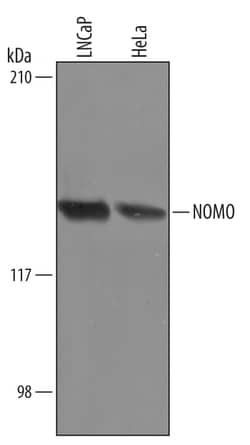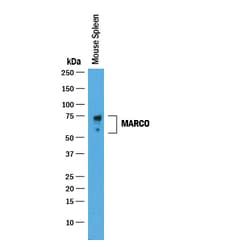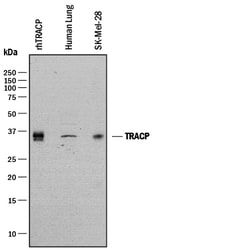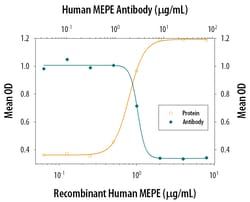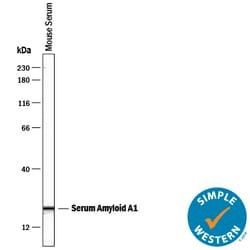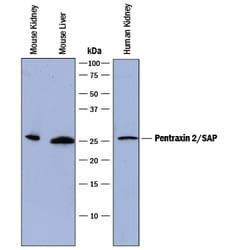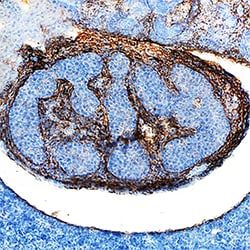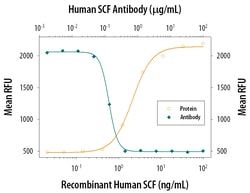Human/Mouse Pentraxin 2/SAP Antibody, R&D Systems™
Manufacturer: R&D Systems
Select a Size
| Pack Size | SKU | Availability | Price |
|---|---|---|---|
| Each of 1 | AF2558SP-Each-of-1 | In Stock | ₹ 17,844.50 |
AF2558SP - Each of 1
In Stock
Quantity
1
Base Price: ₹ 17,844.50
GST (18%): ₹ 3,212.01
Total Price: ₹ 21,056.51
Antigen
Pentraxin 2/SAP
Classification
Polyclonal
Conjugate
Unconjugated
Formulation
Lyophilized from a 0.2 μm filtered solution in PBS with Trehalose. *Small pack size (SP) is supplied as a 0.2 μm filtered solution in PBS. with No Preservative
Gene Alias
9.5S alpha-1-glycoprotein, amyloid P component, serum, APCS, MGC88159, PTX2, PTX2serum amyloid P-component, SAP, SAPpentaxin-related, Serum Amyloid P component
Host Species
Sheep
Purification Method
Affinity Purified
Regulatory Status
RUO
Gene ID (Entrez)
325
Reconstitution
Reconstitute at 0.2 mg/mL in sterile PBS.
Content And Storage
Use a manual defrost freezer and avoid repeated freeze-thaw cycles.12 months from date of receipt, -20 to -70 degreesC as supplied. 1 month, 2 to 8 degreesC under sterile conditions after reconstitution. 6 months, -20 to -70 degreesC under sterile conditions after reconstitution.
Applications
Western Blot
Concentration
LYOPH
Dilution
Western Blot 0.2 ug/mL, Simple Western 2 ug/mL
Gene Accession No.
P12246
Gene Symbols
APCS
Immunogen
Mouse myeloma cell line NS0-derived recombinant mouse Pentraxin 2/SAP Gln21-Asp224 Accession # P12246
Quantity
25 μg
Primary or Secondary
Primary
Test Specificity
Detects human and mouse Pentraxin 2/SAP in direct ELISAs and Western blots.
Target Species
Human, Mouse
Isotype
IgG
Related Products
Description
- Pentraxin 2/SAP Polyclonal specifically detects Pentraxin 2/SAP in Human, Mouse samples
- It is validated for Western Blot, Simple Western.
